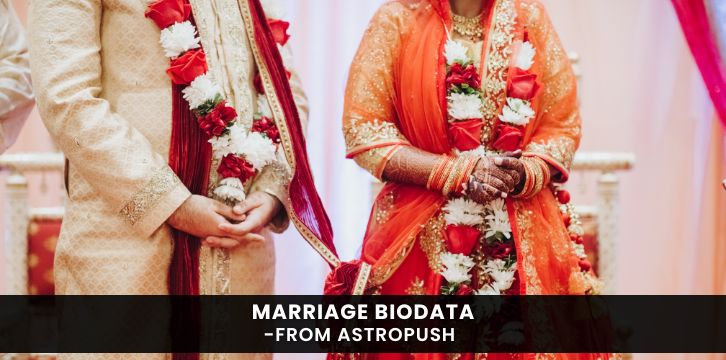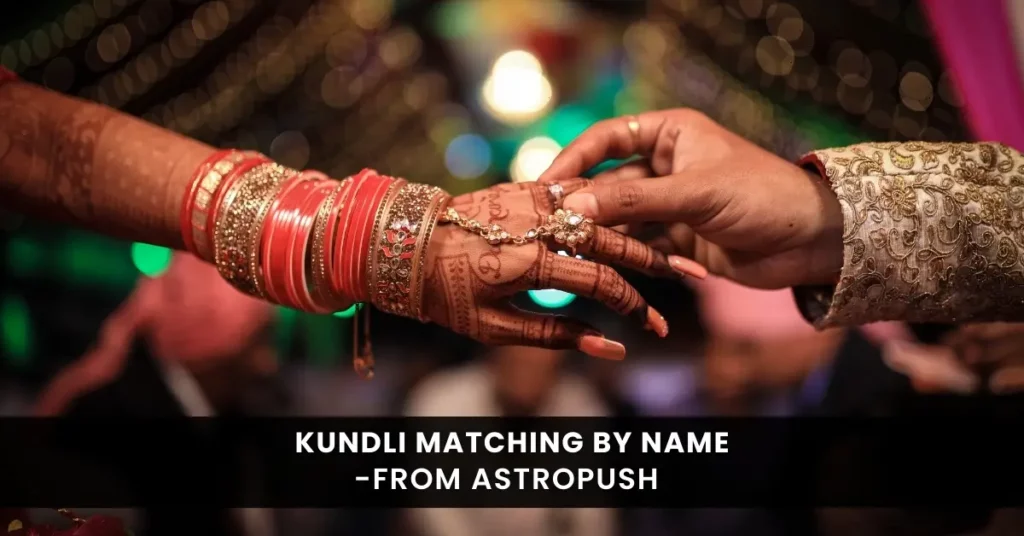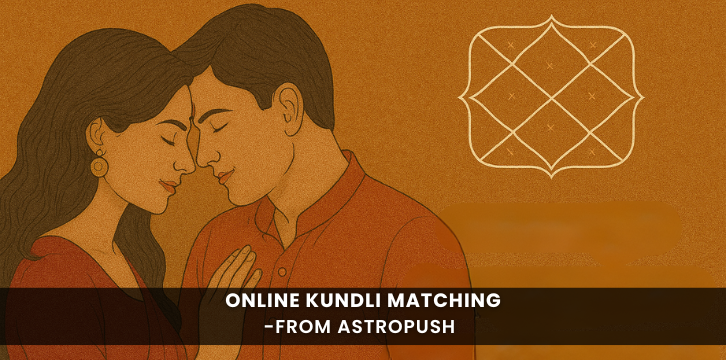When it comes to arranged marriages, the first impression is often made through a document called the Marriage Biodata. It is a snapshot of your personality, lifestyle, family background, and expectations from a life partner. This guide will help you understand everything about Marriage Biodata, how to create one, and the key points to include.
Whether you are searching for a suitable partner through family references or matrimonial sites, a well-crafted marriage biodata can make all the difference. This blog will walk you through everything—from choosing the right words to selecting the right marriage biodata format in Word.
What is a Marriage Biodata?
A Marriage Biodata, also called marital bio data, is like a resume for marriage. It highlights your basic information, education, profession, family background, values, and what you’re looking for in a partner. It’s used in arranged marriages to quickly understand if two individuals might be compatible.
Traditionally, families used to meet and share this information verbally. But today, a written or digital biodata for wedding has become common. It acts as the first step before proceeding to further communication or meetings.
Why is Marriage Biodata Important?
In arranged marriages, time is valuable and first impressions matter. A neat, clear, and honest bio data for marriage format helps save time and avoids mismatches. It also shows that you are serious about your search and respect the time and effort of others.
Moreover, when used with kundli matching or numerology, the matrimonial biodata format becomes a powerful tool. It helps in evaluating compatibility not just practically, but spiritually as well. You can always use a biodata maker or marriage biodata maker to create a beautiful layout.
Create your kundli for free. Free kundli available on AstroPush
Key Sections to Include in Your Marriage Biodata
Let’s break down the essential parts that should be included in a wedding biodata template:
1. Basic Information in Marriage Biodata
This is the first section in your biodata for wedding. It should include:
-
Full Name
-
Date of Birth (DOB)
-
Age
-
Height and Weight
-
Gender
-
Nationality
-
Religion and Caste (if relevant to your family)
-
Mother Tongue
-
Languages Known
-
Blood Group (optional)
-
Complexion (fair, wheatish, dusky – optional)
-
Marital Status (unmarried, divorced, widowed)
For example:
Name: Rohan Sharma
DOB: 15th July 1993
Age: 31 Years
Height: 5’11”
Religion: Hindu – Brahmin
Languages Known: Hindi, English
This section should be crisp. Avoid fancy language or adding unnecessary personal comments.
2. Contact Details in Marriage Biodata
While this might seem basic, make sure it’s accurate and clear. You may include:
-
Mobile Number
-
Email Address
-
WhatsApp (Optional)
-
Home Address (Optional or Brief)
-
Preferred Mode of Contact (Call, SMS, Email)
This helps the other party know how and when to reach you or your family.
3. Educational Background in Marriage Biodata
This section should include your school, college, degrees, and any certifications. Write them in reverse order (most recent first).
-
Name of degree
-
Field of study
-
University or Institution
-
Year of passing
Example:
-
M.Tech in Computer Science, IIT Delhi (2016)
-
B.Tech in Computer Engineering, MIT Pune (2014)
-
12th CBSE – 91%, DPS Indore (2010)
This helps families understand your academic orientation and future goals.
4. Professional Details in Marriage Biodata
This is an important part of your marriage biodata, especially for working individuals.
Include:
-
Your designation
-
Name of company or organization
-
Nature of work (briefly)
-
Work location
-
Salary or Income Bracket (optional)
-
Future career plans (if applicable)
Example:
Designation: Software Engineer
Company: Infosys Technologies
Location: Bangalore
Annual Package: ₹12 Lakhs per annum
Work Mode: Hybrid
Future Plans: Open to relocation after marriage
This tells the other family about your current status and ambitions.
5. Family Background in Marriage Biodata
Since Indian weddings are not just about two people but two families, this section matters a lot. Include:
-
Father’s Name and Occupation
-
Mother’s Name and Occupation
-
Siblings (mention their names, education, and jobs)
-
Family Values (Traditional, Moderate, Liberal)
-
Family Type (Joint or Nuclear)
-
Native Place
-
Current City
Example:
Father: Mr. Vinod Sharma, Retired Government Officer
Mother: Mrs. Sunita Sharma, Homemaker
Siblings: One elder sister, married and settled in Mumbai
Values: Traditional with modern outlook
Family Type: Nuclear
Hometown: Indore
Residence: New Delhi
This shows how rooted or modern your background is and helps assess cultural compatibility.
6. Lifestyle and Hobbies in Marriage Biodata
This is a section where you can showcase your personality.
Mention:
-
Your hobbies or interests
-
Your dietary preferences (vegetarian/non-vegetarian)
-
Smoking/Drinking habits
-
Fitness routine (optional)
-
Travel preferences
-
Any special talents or passions
Example:
Hobbies: Reading, Cycling, Cooking, Solo Traveling
Diet: Vegetarian
Drinking: No
Smoking: No
Hobbies: Playing guitar, exploring new cuisines
This helps the potential match understand your daily life and social habits.
7. Religious/Spiritual Beliefs in Marriage Biodata
While optional, this section can be useful for families that follow specific practices.
Include:
-
Any spiritual gurus you follow
-
If you’re religious, spiritual, or atheist
-
Rituals or festivals you strongly observe
Example:
Beliefs: Follows Art of Living practices
Festivals: Celebrate all major Hindu festivals
Spiritual Inclination: Moderate
This builds clarity about lifestyle after marriage.
8. Partner Preferences in Marriage Biodata
This is a very important part of your matrimonial biodata format.
Mention clearly but respectfully:
-
Age range
-
Minimum height
-
Education and profession
-
Religion and caste preferences (if any)
-
Lifestyle preferences (e.g., vegetarian, non-smoker)
-
Location preferences (India/Abroad/Specific City)
-
Any non-negotiables (like kids from previous marriage, relocation, etc.)
Example:
Looking For: Educated, kind-hearted girl between 25-28 years
Height: 5’3” and above
Profession: Preferably working professional
Diet: Vegetarian or Eggetarian
Location: Willing to relocate to Bangalore
Being honest here saves everyone’s time and effort.
9. Photograph in Marriage Biodata
Include a recent, high-quality photo. Dress neatly in ethnic or formal wear and smile naturally. Avoid filters or selfies. Attach 1 or 2 images maximum.
For example:
-
One half-length formal photo
-
One full-length traditional attire photo (optional)
Photos make the wedding biodata template more personal and relatable.
10. Other Details (Optional)
You can also include:
-
Horoscope/Kundli details
-
Nakshatra and Gotra
-
Manglik status
-
Health-related disclosures
-
Marriage timeline preferences (e.g., within 6 months)
These details are helpful for families that follow astrological matching.
If you are unsure about these, you can generate your kundli for free using services like AstroPush.
Family Background and Values
Family plays a huge role in Indian marriages. So, your marriage biodata should include:
-
Father’s name and occupation
-
Mother’s name and occupation
-
Siblings and their occupations
-
Family values (traditional, moderate, liberal)
-
Family type (joint/nuclear)
Also, mention if your family follows any particular spiritual path or guru. This gives the other family an idea of how you were raised.
Looking for your Panchang? Get free Panchang Calendar here
Partner Preferences
Clearly state your expectations from a life partner. You can mention in Marriage Biodata:
-
Age and height preference
-
Education and profession
-
Location preference (within India/abroad)
-
Lifestyle choices (vegetarian/non-vegetarian, smoking/drinking habits)
-
Religious/spiritual beliefs
Being honest and respectful in this section can help avoid future misunderstandings.
Tips to Make a Great Marriage Biodata
-
Keep it Short and Sweet: Avoid writing long paragraphs. Use bullet points or sections.
-
Use a Clean Format: Choose a simple marriage biodata format in Word or PDF that is easy to read.
-
Use a Professional Photo: A recent, smiling picture in decent attire works best.
-
Be Honest: Never lie about age, salary, or other details.
-
Highlight Strengths: Whether it’s education, a hobby, or a value, mention it confidently.
You can use a bio data maker for marriage or a matrimonial biodata template available online to make your document look more appealing.
Common Marriage Biodata Mistakes to Avoid
-
Adding too much unnecessary information
-
Poor grammar or spelling mistakes
-
Using casual or slang language
-
Not updating changes in job or city
-
Not attaching a clear photo
If you are unsure, take help from a friend or a professional biodata creator to review your bio data for marriage format before sending it.
Discover your life path using our Numerology Service: Numerology – AstroPush
Marriage Biodata Formats & Templates
There are various types of wedding biodata formats to choose from:
-
Traditional Format – Includes family and religious background in detail.
-
Modern Format – Focuses more on education, career, hobbies, and partner preferences.
-
Combo Format – Mixes both traditional and modern styles.
You can find a variety of wedding biodata templates or matrimonial biodata templates online. Choose the one that fits your personality and purpose. Many platforms also allow you to make biodata for marriage online using ready-to-use formats.
Final Thoughts
Creating the perfect marriage biodata doesn’t have to be hard. It’s a personal document, so don’t hesitate to include your unique strengths, beliefs, and values. This is your chance to present yourself honestly and attract the right person into your life.
And remember, even after creating the ideal marital bio data, factors like horoscope compatibility, timing, and blessings matter a lot in Indian marriages. At AstroPush, we help you with all this through services like chat with astrologer online free, free kundli, free horoscope prediction, and more.
Whether you’re making a marriage biodata maker for yourself or helping a friend, use this guide as your trusted reference.
Download the application on PlayStore and AppStore now!





